- Home›
- Healthy Living›
- 8 Effective Home Remedies For Hypothyroidism
8 Effective Home Remedies For Hypothyroidism
By: Priyanka Maheshwari Tue, 03 Oct 2023 11:07:36

Hypothyroidism can develop when the body's production of thyroid hormone falls short, leading to symptoms like fatigue, lethargy, cognitive fog, and weight gain. While it's crucial to obtain a correct diagnosis and undergo appropriate treatment, there are several natural approaches that may enhance your management of hypothyroidism. Thyroid hormones play a significant role in an individual's overall growth and development, and conventional treatment typically involves medication. In addition to medication, explore the following remedies to support the restoration of your thyroid function. Keep reading for further information.
Hypothyroidism is a medical condition characterized by an underactive thyroid gland, which fails to produce sufficient thyroid hormones to meet the body's needs. The thyroid gland is a small butterfly-shaped gland located in the neck, and it plays a crucial role in regulating various bodily functions through the release of thyroid hormones, primarily thyroxine (T4) and triiodothyronine (T3). These hormones help control metabolism, energy production, and the functioning of various organs and tissues.

# Essential Oils
There is some anecdotal and limited scientific evidence suggesting that certain essential oils may have potential benefits for individuals with hypothyroidism, mainly in terms of providing emotional support, managing stress, and promoting relaxation. However, it's important to note that essential oils should not be considered a primary or sole treatment for hypothyroidism, and they should be used as complementary therapies alongside conventional medical treatment prescribed by a healthcare professional. Here are some essential oils that may be considered:
- Lavender Oil: Lavender oil is known for its calming and stress-reducing properties. It may help individuals with hypothyroidism manage stress and improve sleep quality.
- Peppermint Oil: Peppermint oil may help alleviate fatigue and boost energy levels. It can also assist with digestion, which may be affected in some individuals with hypothyroidism.
- Frankincense Oil: Frankincense oil is often used for relaxation and reducing stress, which can be beneficial for individuals with hypothyroidism who may experience mood changes and anxiety.
- Lemongrass Oil: Lemongrass oil may aid in reducing inflammation and promoting overall wellness, which can be important for individuals with autoimmune-related hypothyroidism, such as Hashimoto's thyroiditis.
- Myrrh Oil: Myrrh oil may support immune function and help with inflammation, which can be relevant in autoimmune thyroid conditions.
- Chamomile Oil: Chamomile oil is known for its calming effects and may help individuals with hypothyroidism manage stress and anxiety.
- Rosemary Oil: Some studies suggest that rosemary oil may help improve cognitive function and memory, which can be beneficial for individuals experiencing cognitive impairment due to hypothyroidism.
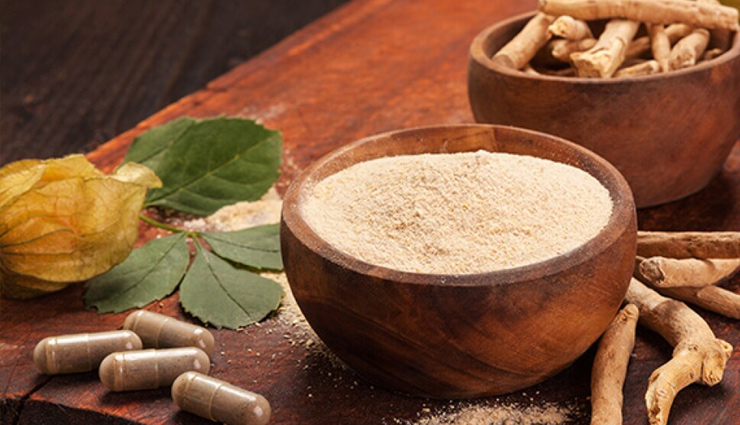
# Ashwagandha
Ashwagandha (Withania somnifera) is an adaptogenic herb that has gained popularity for its potential health benefits, including its impact on thyroid function. Some studies and anecdotal evidence suggest that ashwagandha may have a role in supporting individuals with hypothyroidism, but its use should be approached with caution and under the guidance of a healthcare professional.
Ashwagandha may stimulate the immune system, and in cases of autoimmune hypothyroidism, such as Hashimoto's thyroiditis, where the immune system attacks the thyroid gland, using ashwagandha could potentially exacerbate the condition. If you have an autoimmune thyroid disorder, consult your healthcare provider before using ashwagandha.

# Minerals
Minerals play a crucial role in thyroid function, and certain minerals are particularly important for individuals with hypothyroidism. Hypothyroidism is often characterized by an underactive thyroid gland that does not produce enough thyroid hormones. Ensuring an adequate intake of essential minerals can support thyroid health and overall well-being.
- Iodine: Iodine is an essential component of thyroid hormones. The thyroid gland combines iodine with the amino acid tyrosine to produce thyroid hormones (T3 and T4). In cases of iodine deficiency, hypothyroidism can develop. However, it's crucial to note that iodine supplementation is only recommended for individuals with iodine deficiency-related hypothyroidism. In regions where iodine deficiency is not common, excessive iodine intake can actually worsen thyroid function or trigger autoimmune thyroid conditions.
- Selenium: Selenium is a trace mineral that plays a role in the conversion of thyroid hormone T4 (thyroxine) to the more active form T3 (triiodothyronine). Selenium also has antioxidant properties that may protect the thyroid gland from oxidative damage. Adequate selenium levels are important for thyroid function, but excessive intake should be avoided.
- Zinc: Zinc is involved in the production and regulation of thyroid hormones. It supports the conversion of T4 to T3 and helps with thyroid hormone receptor binding. A deficiency in zinc can negatively impact thyroid function.
- Iron: Iron is necessary for the synthesis of thyroid peroxidase, an enzyme involved in the production of thyroid hormones. Iron deficiency can lead to impaired thyroid hormone production and contribute to hypothyroidism.
- Copper: Copper is needed for the synthesis of thyroid hormones and for the conversion of T4 to T3. However, an excessive intake of copper can interfere with zinc absorption, so maintaining a proper balance between these minerals is essential.
- Magnesium: Magnesium is involved in various biochemical processes, including the conversion of T4 to T3. Ensuring an adequate intake of magnesium is important for thyroid health.
- Vitamin D: While not a mineral, vitamin D is essential for thyroid function. It plays a role in regulating the immune system and may have a protective effect against autoimmune thyroid conditions such as Hashimoto's thyroiditis.
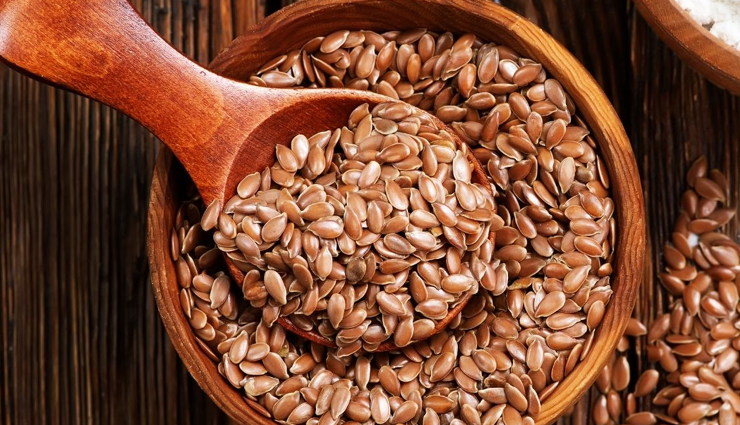
# Flaxseeds
Flaxseeds are a nutritious food that contains various beneficial components, including fiber, healthy fats, and phytochemicals. While flaxseeds offer several health benefits, their role in managing hypothyroidism is a topic of debate. Flaxseeds, like some other foods, contain compounds called goitrogens. Goitrogens can interfere with thyroid function by inhibiting the absorption of iodine, which is essential for the production of thyroid hormones. However, the goitrogenic effect of flaxseeds is generally considered to be mild, especially when consumed in moderation.
Flaxseeds are a good source of dietary fiber, which can affect the absorption of hypothyroidism medication. If you take thyroid medication, it's essential to be cautious with high-fiber foods like flaxseeds. Consuming them too close to taking your medication may interfere with the medication's absorption. It's recommended to wait at least a few hours after taking your thyroid medication before consuming high-fiber foods. Flaxseeds are rich in alpha-linolenic acid (ALA), which is a type of omega-3 fatty acid. Omega-3 fatty acids have anti-inflammatory properties and may offer some benefits in managing autoimmune thyroid conditions, such as Hashimoto's thyroiditis, which can sometimes accompany hypothyroidism.
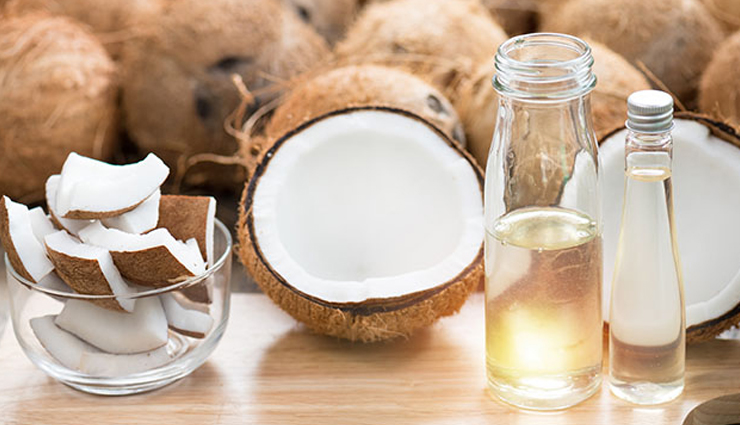
# Coconut Oil
Coconut oil is a versatile oil that has gained popularity for its potential health benefits. Some people believe that coconut oil can be helpful for individuals with hypothyroidism, but it's important to understand the limitations and considerations associated with its use in this context. Coconut oil contains a high proportion of medium-chain triglycerides (MCTs), specifically lauric acid. MCTs are easily digested and can provide a quick source of energy. Some proponents suggest that MCTs in coconut oil may help boost energy levels, which can be beneficial for individuals with hypothyroidism who often experience fatigue.
Some people with hypothyroidism struggle with weight gain. There is some speculation that the MCTs in coconut oil may support weight management by increasing metabolism and promoting fat burning. However, scientific evidence supporting this claim is limited, and any potential effects are likely to be modest. There is no substantial scientific evidence to suggest that coconut oil directly affects thyroid hormone production or function. Thyroid hormones are primarily produced by the thyroid gland, and coconut oil is not a treatment for hypothyroidism.
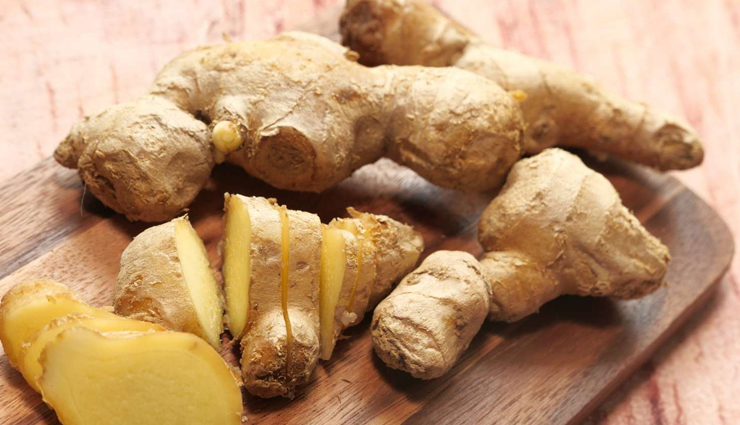
# Ginger
Ginger is a popular spice with various potential health benefits, but its role in managing hypothyroidism is not well-established. Hypothyroidism is a medical condition characterized by an underactive thyroid gland, which leads to insufficient production of thyroid hormones. Ginger is known for its anti-inflammatory properties, and chronic inflammation is often associated with autoimmune thyroid conditions like Hashimoto's thyroiditis. While ginger may help reduce inflammation in general, its direct effect on thyroid inflammation is not well-documented.
Ginger contains antioxidants that can help combat oxidative stress in the body. Oxidative stress can contribute to thyroid dysfunction, and antioxidants may offer some level of protection. However, ginger should be considered as part of an overall antioxidant-rich diet. Ginger is commonly used to alleviate digestive issues like nausea and indigestion. Some individuals with hypothyroidism may experience gastrointestinal symptoms, and ginger may provide relief in such cases.
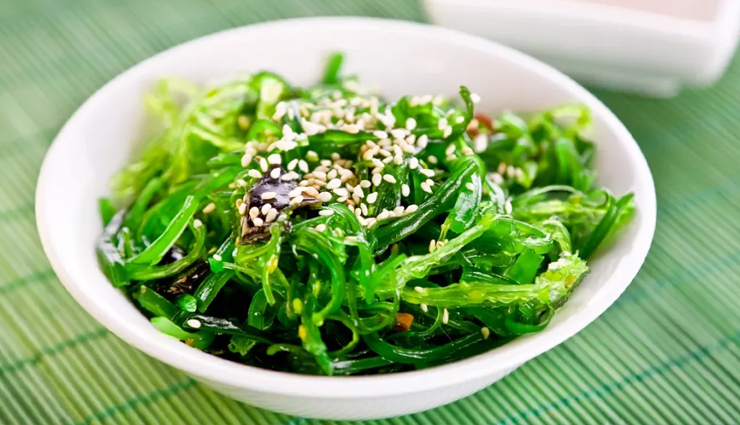
# Kelp
Kelp is a type of seaweed that is often touted as a natural source of iodine, a mineral essential for the production of thyroid hormones. Given that iodine deficiency can lead to hypothyroidism, some individuals consider kelp as a potential dietary supplement to support thyroid health. Kelp is indeed rich in iodine, and consuming it can provide a significant amount of this essential mineral. Iodine is a key component of thyroid hormones, and a deficiency can lead to hypothyroidism. However, it's important to emphasize that iodine deficiency is not common in many parts of the world, including regions with access to iodized salt. Therefore, supplementing with iodine-rich foods like kelp is generally unnecessary and can even be harmful in some cases.
Excessive iodine intake can lead to thyroid dysfunction, including both hyperthyroidism (an overactive thyroid) and hypothyroidism (an underactive thyroid). This is particularly concerning for individuals with pre-existing thyroid conditions. Consuming too much iodine, either through supplements or foods like kelp, can disrupt thyroid hormone production and lead to thyroid disorders. The iodine content of kelp can vary widely depending on factors like the type of kelp, growing conditions, and processing methods. It is difficult to determine the exact iodine content of kelp products, making it challenging to regulate iodine intake.

# Guggul
Guggul, also known as Commiphora wightii, is an herbal resin derived from the mukul myrrh tree, commonly found in India and parts of Africa. It has been traditionally used in Ayurvedic medicine for a variety of purposes, including for its potential effects on thyroid function. However, the use of guggul for hypothyroidism remains controversial and is not supported by robust scientific evidence. Guggul has been proposed to have a potential impact on thyroid function by increasing the production of thyroid hormones, specifically thyroxine (T4). Some animal and in vitro studies have suggested that guggulsterone, a compound found in guggul, may stimulate thyroid activity. However, these findings are not yet well-established in human studies.
While there have been a few small studies examining the effects of guggul on thyroid function in humans, the results have been mixed, and the quality of the research is generally low. More rigorous clinical trials are needed to determine whether guggul is a safe and effective treatment for hypothyroidism. Guggul can have side effects and may interact with other medications. It can cause gastrointestinal upset, skin rashes, and allergic reactions in some individuals. Additionally, guggul may interact with drugs that affect thyroid function, such as synthetic thyroid hormone medications or medications used to treat hyperthyroidism.





